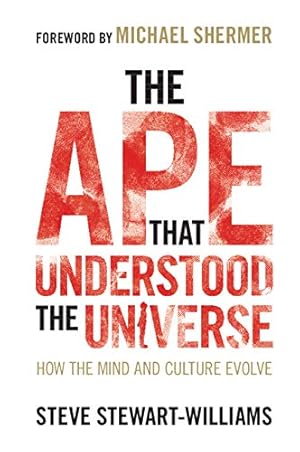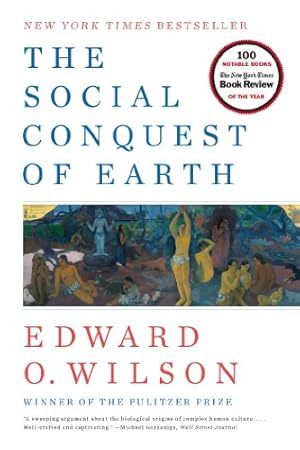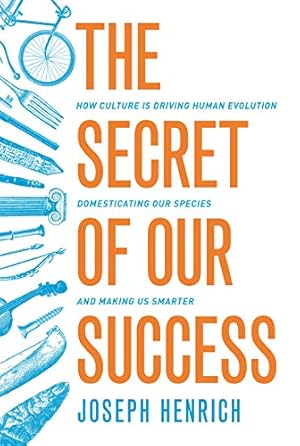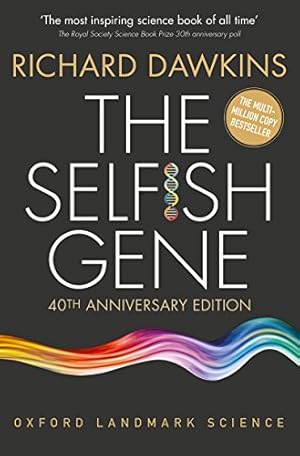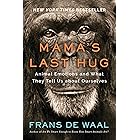Learn more
These promotions will be applied to this item:
Some promotions may be combined; others are not eligible to be combined with other offers. For details, please see the Terms & Conditions associated with these promotions.
Your Memberships & Subscriptions

Download the free Kindle app and start reading Kindle books instantly on your smartphone, tablet, or computer - no Kindle device required.
Read instantly on your browser with Kindle for Web.
Using your mobile phone camera - scan the code below and download the Kindle app.



 Audible sample
Audible sample Primates and Philosophers: How Morality Evolved (Princeton Science Library) Kindle Edition
Can virtuous behavior be explained by nature, and not by human rational choice? "It's the animal in us," we often hear when we've been bad. But why not when we're good? Primates and Philosophers tackles this question by exploring the biological foundations of one of humanity's most valued traits: morality.
In this provocative book, renowned primatologist Frans de Waal argues that modern-day evolutionary biology takes far too dim a view of the natural world, emphasizing our "selfish" genes and reinforcing our habit of labeling ethical behavior as humane and the less civilized as animalistic. Seeking the origin of human morality not in evolution but in human culture, science insists that we are moral by choice, not by nature.
Citing remarkable evidence based on his extensive research of primate behavior, de Waal attacks "Veneer Theory," which posits morality as a thin overlay on an otherwise nasty nature. He explains how we evolved from a long line of animals that care for the weak and build cooperation with reciprocal transactions. Drawing on Darwin, recent scientific advances, and his extensive research of primate behavior, de Waal demonstrates a strong continuity between human and animal behavior. He probes issues such as anthropomorphism and human responsibilities toward animals. His compelling account of how human morality evolved out of mammalian society will fascinate anyone who has ever wondered about the origins and reach of human goodness.
Based on the Tanner Lectures de Waal delivered at Princeton University's Center for Human Values in 2004, Primates and Philosophers includes responses by the philosophers Peter Singer, Christine M. Korsgaard, and Philip Kitcher and the science writer Robert Wright. They press de Waal to clarify the differences between humans and other animals, yielding a lively debate that will fascinate all those who wonder about the origins and reach of human goodness.
- LanguageEnglish
- PublisherPrinceton University Press
- Publication dateJanuary 12, 2009
- File size3.3 MB
Shop this series
See full series- Kindle Price:$68.15By placing your order, you're purchasing a license to the content and you agree to the Kindle Store Terms of Use.
- Kindle Price:$93.30By placing your order, you're purchasing a license to the content and you agree to the Kindle Store Terms of Use.
- Kindle Price:$149.55By placing your order, you're purchasing a license to the content and you agree to the Kindle Store Terms of Use.
- Kindle Price:$759.60By placing your order, you're purchasing a license to the content and you agree to the Kindle Store Terms of Use.
- Kindle Price:$154.18By placing your order, you're purchasing a license to the content and you agree to the Kindle Store Terms of Use.
Shop this series
This option includes 3 books.
This option includes 5 books.
This option includes 10 books.
This option includes 49 books.
This option includes 10 books.
Customers also bought or read
- A Primate's Memoir: A Neuroscientist's Unconventional Life Among the Baboons
 Kindle Edition$13.99$13.99
Kindle Edition$13.99$13.99 - Mama's Last Hug: Animal Emotions and What They Tell Us about OurselvesEditors' pick
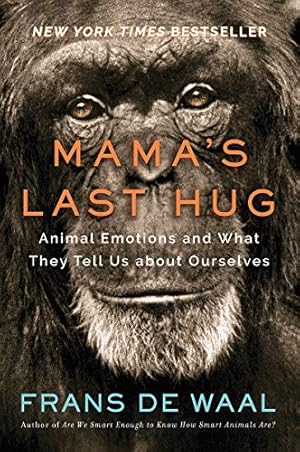 Kindle Edition$9.99$9.99
Kindle Edition$9.99$9.99 - The Moral Animal: Why We Are, the Way We Are: The New Science of Evolutionary Psychology
 Kindle Edition$4.99$4.99
Kindle Edition$4.99$4.99 - The Goodness Paradox: The Strange Relationship Between Virtue and Violence in Human Evolution
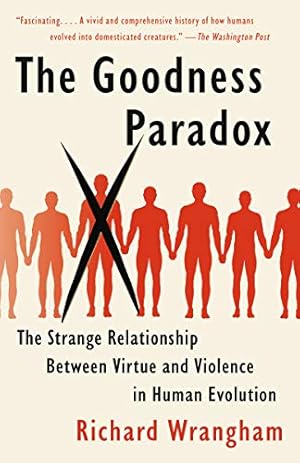 Kindle Edition$11.99$11.99
Kindle Edition$11.99$11.99 - Fellow Creatures: Our Obligations to the Other Animals (Uehiro Series in Practical Ethics)
 Kindle Edition$9.99$9.99
Kindle Edition$9.99$9.99 - Space Oddities: The Mysterious Anomalies Challenging Our Understanding of the Universe
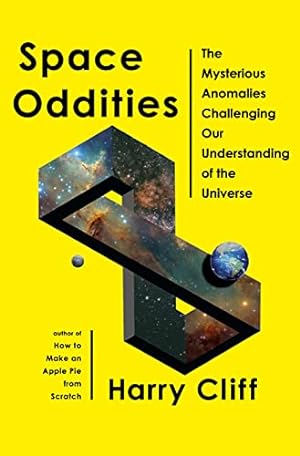 Kindle Edition$14.99$14.99
Kindle Edition$14.99$14.99 - The Myth of American Idealism: How U.S. Foreign Policy Endangers the World
 Kindle Edition$13.99$13.99
Kindle Edition$13.99$13.99 - Waves in an Impossible Sea: How Everyday Life Emerges from the Cosmic Ocean
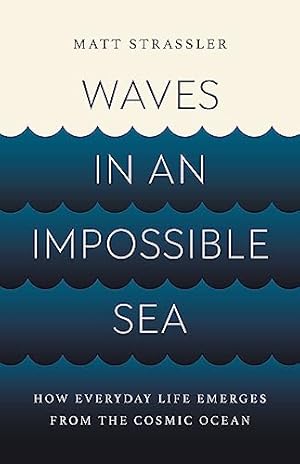 Kindle Edition$19.99$19.99
Kindle Edition$19.99$19.99 - A Universe from Nothing: Why There Is Something Rather than NothingGoodreads Choice
 Kindle Edition$14.99$14.99
Kindle Edition$14.99$14.99
Customers who bought this item also bought
Editorial Reviews
From Publishers Weekly
Copyright © Reed Business Information, a division of Reed Elsevier Inc. All rights reserved.
From Scientific American
Jonathan Weiner won a Pulitzer Prize in 1995 for The Beak of the Finch. He teaches science writing in Columbia Universitys Graduate School of Journalism.
From Booklist
Copyright © American Library Association. All rights reserved
Review
Review
"On the basis of a fascinating and provocative account of the remarkable continuities between the social emotions of humans and of nonhuman primates, de Waal develops a compelling case―which moral philosophers would do well to take seriously―for the evolutionary roots of human morality. In addition, he and his commentators conduct an illuminating discussion of some fundamental methodological and ethical issues―such as whether it is necessarily illicit to characterize animal behavior 'anthropomorphically,' and whether it is reasonable to attribute 'rights' to animals. Anyone who is interested in these issues, and especially those interested in the sources of human morality, will find this book exceptionally challenging and worthwhile."―Harry Frankfurt, author of On Bullshit
"Frans de Waal is the perfect guide to the emerging data on moral-like behavior in animals. Strengthened by deep sensitivity to the complexity of social relations and by a strong defense of anthropomorphism, this book shows how evolutionary biology can contribute to moral philosophy not merely through general principles, but by specific phylogenetic comparisons. It is a major advance in the socialization of ethology."―Richard Wrangham, Harvard University, coauthor of Demonic Males: Apes and the Origins of Human Violence
"Here, Frans de Waal, the world's leading researcher on primate behavior, a highly reflective thinker, and a skilled writer, presents the fruits of thirty years of empirical research. Addressing some of the most fundamental issues of social science and moral theory, he and the commentators produce a book that will be of deep and enduring interest to philosophers, social and political theorists, and anyone who wishes to assess their views about human nature and the nature of morality."―John Gray, London School of Economics, author of Straw Dogs: Thoughts on Humans and Other Animals
"This important book centers on Frans de Waal's powerful statement about the psychological nature of moral behavior, which involves strong continuities between humans and apes."―Christopher Boehm, University of Southern California, author of Hierarchy in the Forest
From the Inside Flap
"Frans de Waal has achieved that state of grace for a scientist--doing research that is both rigorous and wildly creative, and in the process has redefined how we think about the most interesting realms of behavior among nonhuman primates--cooperation, reconciliation, a sense of fairness, and even the rudiments of morality. In these Tanner lectures and the subsequent dialogue with leading philosophers and evolutionary psychologists, de Waal takes this knowledge to redefine how we think of morality in another primate, namely ourselves. This is superb and greatly challenging thinking."--Robert M. Sapolsky, author of Why Zebras Don't Get Ulcers and A Primate's Memoir
"On the basis of a fascinating and provocative account of the remarkable continuities between the social emotions of humans and of nonhuman primates, de Waal develops a compelling case--which moral philosophers would do well to take seriously--for the evolutionary roots of human morality. In addition, he and his commentators conduct an illuminating discussion of some fundamental methodological and ethical issues--such as whether it is necessarily illicit to characterize animal behavior 'anthropomorphically,' and whether it is reasonable to attribute 'rights' to animals. Anyone who is interested in these issues, and especially those interested in the sources of human morality, will find this book exceptionally challenging and worthwhile."--Harry Frankfurt, author of On Bullshit
"Frans de Waal is the perfect guide to the emerging data on moral-like behavior in animals. Strengthened by deep sensitivity to the complexity of social relations and by a strong defense of anthropomorphism, this book shows how evolutionary biology can contribute to moral philosophy not merely through general principles, but by specific phylogenetic comparisons. It is a major advance in the socialization of ethology."--Richard Wrangham, Harvard University, coauthor of Demonic Males: Apes and the Origins of Human Violence
"Here, Frans de Waal, the world's leading researcher on primate behavior, a highly reflective thinker, and a skilled writer, presents the fruits of thirty years of empirical research. Addressing some of the most fundamental issues of social science and moral theory, he and the commentators produce a book that will be of deep and enduring interest to philosophers, social and political theorists, and anyone who wishes to assess their views about human nature and the nature of morality."--John Gray, London School of Economics, author of Straw Dogs: Thoughts on Humans and Other Animals
"This important book centers on Frans de Waal's powerful statement about the psychological nature of moral behavior, which involves strong continuities between humans and apes."--Christopher Boehm, University of Southern California, author of Hierarchy in the Forest
From the Back Cover
"Frans de Waal has achieved that state of grace for a scientist--doing research that is both rigorous and wildly creative, and in the process has redefined how we think about the most interesting realms of behavior among nonhuman primates--cooperation, reconciliation, a sense of fairness, and even the rudiments of morality. In these Tanner lectures and the subsequent dialogue with leading philosophers and evolutionary psychologists, de Waal takes this knowledge to redefine how we think of morality in another primate, namely ourselves. This is superb and greatly challenging thinking."--Robert M. Sapolsky, author ofWhy Zebras Don't Get Ulcers and A Primate's Memoir
"On the basis of a fascinating and provocative account of the remarkable continuities between the social emotions of humans and of nonhuman primates, de Waal develops a compelling case--which moral philosophers would do well to take seriously--for the evolutionary roots of human morality. In addition, he and his commentators conduct an illuminating discussion of some fundamental methodological and ethical issues--such as whether it is necessarily illicit to characterize animal behavior 'anthropomorphically,' and whether it is reasonable to attribute 'rights' to animals. Anyone who is interested in these issues, and especially those interested in the sources of human morality, will find this book exceptionally challenging and worthwhile."--Harry Frankfurt, author ofOn Bullshit
"Frans de Waal is the perfect guide to the emerging data on moral-like behavior in animals. Strengthened by deep sensitivity to the complexity of social relations and by a strong defense of anthropomorphism, this book shows how evolutionary biology can contribute to moral philosophy not merely through general principles, but by specific phylogenetic comparisons. It is a major advance in the socialization of ethology."--Richard Wrangham, Harvard University, coauthor ofDemonic Males: Apes and the Origins of Human Violence
"Here, Frans de Waal, the world's leading researcher on primate behavior, a highly reflective thinker, and a skilled writer, presents the fruits of thirty years of empirical research. Addressing some of the most fundamental issues of social science and moral theory, he and the commentators produce a book that will be of deep and enduring interest to philosophers, social and political theorists, and anyone who wishes to assess their views about human nature and the nature of morality."--John Gray, London School of Economics, author of Straw Dogs: Thoughts on Humans and Other Animals
"This important book centers on Frans de Waal's powerful statement about the psychological nature of moral behavior, which involves strong continuities between humans and apes."--Christopher Boehm, University of Southern California, author ofHierarchy in the Forest
About the Author
Product details
- ASIN : B003SNJESA
- Publisher : Princeton University Press (January 12, 2009)
- Publication date : January 12, 2009
- Language : English
- File size : 3.3 MB
- Text-to-Speech : Enabled
- Screen Reader : Supported
- Enhanced typesetting : Enabled
- X-Ray : Not Enabled
- Word Wise : Enabled
- Print length : 230 pages
- Best Sellers Rank: #995,557 in Kindle Store (See Top 100 in Kindle Store)
- #43 in Zoology of Primatology
- #808 in Evolution (Kindle Store)
- #1,411 in Ethics & Morality
- Customer Reviews:
About the authors

I am a Dutch/American biologist, born in 1948 in Den Bosch, the Netherlands. I have lived in the USA since 1981.
My passion is primate behavior, and the comparison between primate and human behavior. I pursue the first as a scientist and the second as the author of popular science books. For me, there is nothing more logical than to look at human society through the lens of animal behavior. I have a Ph. D. in biology and ethology (the study of animal behavior) from the University of Utrecht.
My first book, "Chimpanzee Politics" (1982), compared the schmoozing and scheming of chimpanzees involved in power struggles with that of human politicians. The book was put on the reading list of congress in Washington. Ever since, I have drawn parallels between primate and human behavior, from aggression to morality and culture.
Gender differences are a logical subject for a primatologist since the gender debate always turns around. the interaction between nature and nurture. Despite attempts to separate gender from biology, as if it were purely a human construct, the reason we have a gender duality is that our species has two sexes to begin with. I agree that the sexual binary is a mere approximation (even at the biological level, it has exceptions and intermediates), but still, the way the sexes differ in other primates tells us something about ourselves.
My latest book "Different: Gender Through the Eyes of a Primatologist" (Norton, 2022) compares sex differences in three closely related species: humans, chimpanzees, and bonobos. It tries to dispel the idea that only humans have genders and that only we have gender diversity. Other primates, too, adopt sex-typical behavior from watching others, hence have genders. They show the same array of gender expressions celebrated under the LGBTQ flag. My book pays attention to non-conforming individuals as well as homosexual behavior among the primates.
Since childhood, I have been an animal lover, and in fact -- even though my career has focused on primate behavior -- I am interested in all sorts of animals, including fish and birds, but also elephants and dolphins. My book on animal intelligence -- "Are We Smart Enough to Know How Smart Animals Are?" (Norton, 2016) -- reflects this broader interest, as it covers a wide range of species.
My wife, Catherine, and I live in a forested area near Smoke Rise, in Georgia, a state we love. I retired from my position at Emory University in 2019, right before the Covid crisis. I am still involved in primate studies, mainly at sanctuaries for great apes in Africa, but mostly devote my time to reading, writing, and touring to give lectures.
I am a member of the National Academy of Sciences as well as of the Royal Netherlands Academy of Arts and Sciences. In 2007, Time declared me one of The Worlds’ 100 Most Influential People Today.
My books have been translated into over twenty languages, appeared on the New York Times bestseller list, and received awards, such as:
• The 2020 PEN / E.O. Wilson Literary Science Writing Award for "Mama’s Last Hug"
• The 1989 Los Angeles Times Book Award for "Peacemaking among Primates"
More on my background on the following website:
https://www.emory.edu/LIVING_LINKS/bonobo_atheist/author1.shtml
My public Facebook page with 750K followers announces upcoming lectures:
https://www.facebook.com/franspublic/

Discover more of the author’s books, see similar authors, read book recommendations and more.

For more information see Christine M. Korsgaard's web page at
http://www.people.fas.harvard.edu/~korsgaar/

I am a professor of Political Science and Classics at Stanford University. I am also the founder and currently faculty director of the Stanford Civics Initiative (https://civics.stanford.edu/). I hold a bachelor's degree in History from the University of Minnesota and a PhD in History from the University of Michigan. I joined the Stanford faculty in 2006; I previously taught at Princeton and Montana State Universities. I once served as Chairman of Princeton’s Classics Department and later as Chairman of Stanford’s Political Science Department. My writing focuses on history, political theory, economic thought, and the contemporary relevance of the ancient Greek world. My current work in progress includes a book, co-authored with my friend Brook Manville, on the role of civic bargains in the emergence and persistence of democratic government. My wife is Adrienne Mayor, the author of a number of terrific books on ancient myth and science.
Customer reviews
Customer Reviews, including Product Star Ratings help customers to learn more about the product and decide whether it is the right product for them.
To calculate the overall star rating and percentage breakdown by star, we don’t use a simple average. Instead, our system considers things like how recent a review is and if the reviewer bought the item on Amazon. It also analyzed reviews to verify trustworthiness.
Learn more how customers reviews work on AmazonCustomers say
Customers find the book's writing quality excellent, with one review noting it provides views from five different scholars. The book receives positive feedback for its readability, with customers describing it as a great read.
AI-generated from the text of customer reviews
Select to learn more
Customers praise the writing quality of the book, describing it as extremely well written and informative on the topic of morality. One customer notes that it provides views from five different scholars.
"...about the meaning of evolution, to bear upon a fundamental question about human morality...." Read more
"...Frans de Waal provides and extremely well written thesis on his views of morality in humans, his views are then analyzed by others, and closes with..." Read more
"...The book has some good thoughts but I much prefer the most recent books that de Waal has written and I would recommend starting there first as they..." Read more
"de Waal and all the other contributors did an amazing job spelling out important issues of morality, altruism, and the different levels they..." Read more
Customers find the book readable and valuable.
"This is a great book if only because it provides views from five different scholars. "..." Read more
"Excellent book; Very informative on the topic. This was the "go-to" source for my Philosophy Senior Thesis on sapience and pan troglodytes." Read more
"Wonderful read; very well written...." Read more
"Great Read...." Read more
Top reviews from the United States
There was a problem filtering reviews. Please reload the page.
- Reviewed in the United States on February 6, 2010This is a great book if only because it provides views from five different scholars. "In the Tanner Lectures on Human Values that became the lead essay in this book, Frans de Waal brings his decades of work with primates, and his habit of thinking deeply about the meaning of evolution, to bear upon a fundamental question about human morality. Three distinguished philosophers and a prominent student of evolutionary psychology then respond to the way de Waal's question is framed, and to his answer. Their essays are at once appreciative of de Waal's endeavor and critical of certain of his conclusions. De Waal responds to his critics in an afterword."
The main thrust of de Waal's essay is what he calls "Veneer Theory," which is the argument that morality is only a thin veneer overlaid on an amoral or immoral core. The first to respond is Robert Wright (The Moral Animal: Evolutionary Psychology and Everyday Life), who states that he is in fact not an adherent to de Waal's Veneer Theory. Second is Christine M. Korsgaard (Self-Constitution: Agency, Identity, and Integrity), who denies that Veneer Theory is even real. Third is Philip Kitcher (Living with Darwin: Evolution, Design, and the Future of Faith (Philosophy in Action)), who generally attacks Veneer Theory as not being relevant to bridging the divide between primates and humans. The fourth, last, and my personal favorite, comes from Peter Singer (The Life You Can Save: Acting Now to End World Poverty). Singer, I believe, does the greatest justice to the entire argument and I happen to agree with almost everything he says. Singer states, "The issue, then, is not so much whether we accept the Veneer Theory of morality, but rather how much of morality is veneer, and how much is underlying structure. Those who claim that all of morality is a veneer laid over a basically individualistic, selfish human nature, are mistaken. Yet a morality that goes beyond our own group and shows impartial concern for all human beings might well be seen as a veneer over the nature we share with other social mammals."
In conclusion, I think this is a valuable book and do recommend it. I would also recommend getting Michael Tomasello's Why We Cooperate (Boston Review Books) as it is similar in nature and style. Lastly, I would also mention that Frans de Waal mentions a research experiment in which he "demonstrates" primate empathy, but as Tomasello points out, "But studies [contra de Waal] from three different laboratories in the case of the capuchins, and from our laboratory in the case of the chimpanzees, have all found that this is a spurious result in that it does not depend on a social comparison at all. One of the studies found that simply seeing and expecting to receive the grape makes the cucumber look less attractive to chimpanzees. No other individuals need to be around. There is no social comparison going on, only food comparison. So nothing related to norms of fairness are at work either (pg. 32)." Hope that helps.
- Reviewed in the United States on April 20, 2008This book was lent to me by a friend, and after reading I felt it necessary to purchase my own copy. I would have never made this choice, this text is completely outside my normal reading genres, but I'm very glad I did. Frans de Waal provides and extremely well written thesis on his views of morality in humans, his views are then analyzed by others, and closes with his response. I haven't read his other text Good Natured, but intend to do so.
It is important to note that I am in no way highly educated in the fields of primatology, anthropology, or philosophy; my background is in math and computer science; so I came to this book with a certain ignorance.
- Reviewed in the United States on September 22, 2022This book is written in a unique style in that it is almost like you are attending an academic conference on the topic as it is presented by different people. You get to read de Waal's insights and then hear others counter or agree with his positions on animals and morality. The book has some good thoughts but I much prefer the most recent books that de Waal has written and I would recommend starting there first as they are much more interesting and comprehensive. Because I have read those, I was able to follow this a little better. The presentation of the material is okay but not as it is for his other books or other science books. Overall, I'm glad I read it, but would suggest starting with a different book first before picking this up.
- Reviewed in the United States on October 27, 2023de Waal and all the other contributors did an amazing job spelling out important issues of morality, altruism, and the different levels they manifest from an evolutionary perspective.
- Reviewed in the United States on November 23, 2020Present for my daughter. She loves it
- Reviewed in the United States on March 11, 2009The notion that our moral sense is not just a thin veneer added by civilization over a cruel and brutish nature, but rather something we inherited in our genes, is now widely accepted. More than anyone else, de Waal contributed to make this view plausible, and probable. His writing is clear and can be understood by anyone. Highly recommended.
- Reviewed in the United States on October 18, 2013This is a fascinating discussion between Frans v d Waal and several philosophers on the nature of the connection between our primate relatives and ourselves, particularly whether chimps and bonobos in particular are 'moral' in the sense we understand it.
- Reviewed in the United States on October 13, 2015Excellent book; Very informative on the topic. This was the "go-to" source for my Philosophy Senior Thesis on sapience and pan troglodytes.
Top reviews from other countries
 JaganReviewed in India on October 4, 2017
JaganReviewed in India on October 4, 20175.0 out of 5 stars Five Stars
well written
 TarkusReviewed in the United Kingdom on April 9, 2016
TarkusReviewed in the United Kingdom on April 9, 20165.0 out of 5 stars A-morality
The earlier reviews posted by Ashtar Command and Stephen A Haines provide very good summaries of the arguments advanced in this book, so I will not repeat them here. I would only stress that the comments in Part Two are those of a group of philosophers all of whom accept that Homo sapiens and the great apes evolved from a common ancestor through natural selection. This means that there is no attempt to invoke religious explanations for human moral exceptionalism (such as it is!). Secondly, all accept that moral goodness is a reality about which truth claims can be made - so moral relativism is given short shrift.
If, like me, you are happy with these constraints, you may find de Waal's arguments almost irresistible - the contrast between de Waal's empirically-based observations and the "thought experiments" and definitional quibbling of the philosophers is especially telling.
Whilst most of the material that de Waals describes appears in more - and more satisfying - detail in his earlier book, "The Bonobo and the Atheist", this volume does represent an interesting attempt to create a genuine dialogue between "science" and more purely academic philosophy. It might also act as a useful corrective to those who misinterpret the notion of "selfishness" in its biological, Darwinian sense.
Highly recommended.
-
 RoyReviewed in France on December 27, 2017
RoyReviewed in France on December 27, 20174.0 out of 5 stars superbe
Cet ouvrage qui comprend en fait une introduction, un article de de waal, deux articles critiques et une réponse de de waal est assez intéressant puisqu'il pose la question du modèle de l'homme. En creux, il critique la théorie standard en matière de comportement humain telle qu'elle est développée, notamment, par l'économie. Les réflexions proposées sont souvent stimulantes et l'ouvrage est bien écrit. Une lecture utile, même si l'on n'est pas intéressé par la zoologie ou la primatologie.
-
 AnónimoReviewed in Mexico on May 2, 2024
AnónimoReviewed in Mexico on May 2, 20245.0 out of 5 stars Interesante
Aunque algo complejo para quienes no han leído autores de los cuales trata el autor del libro.
-
 LetyouReviewed in Mexico on September 29, 2020
LetyouReviewed in Mexico on September 29, 20201.0 out of 5 stars Sin envoltura >:u
No viene con envoltura :C
















